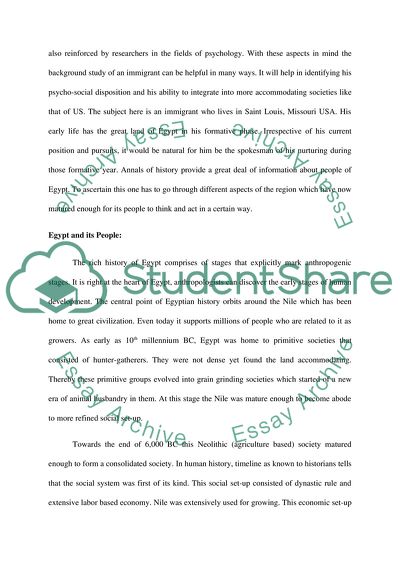Egypt and its People Report Example | Topics and Well Written Essays - 1750 words. https://studentshare.org/anthropology/1813587-the-ties-that-bonds
Egypt and Its People Report Example | Topics and Well Written Essays - 1750 Words. https://studentshare.org/anthropology/1813587-the-ties-that-bonds.


